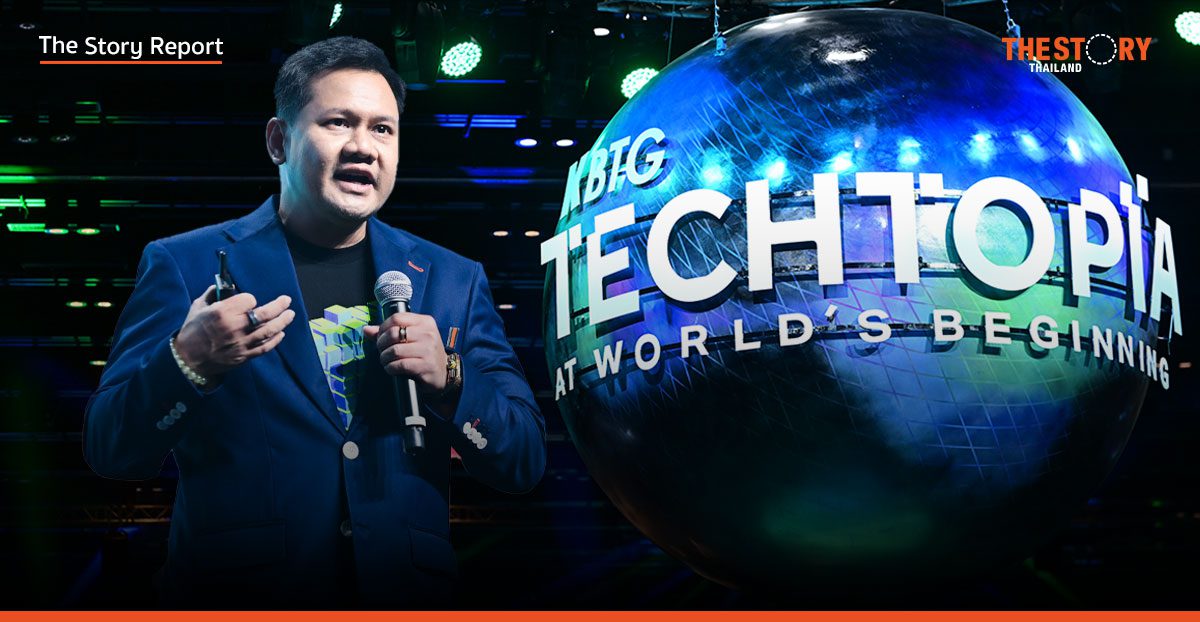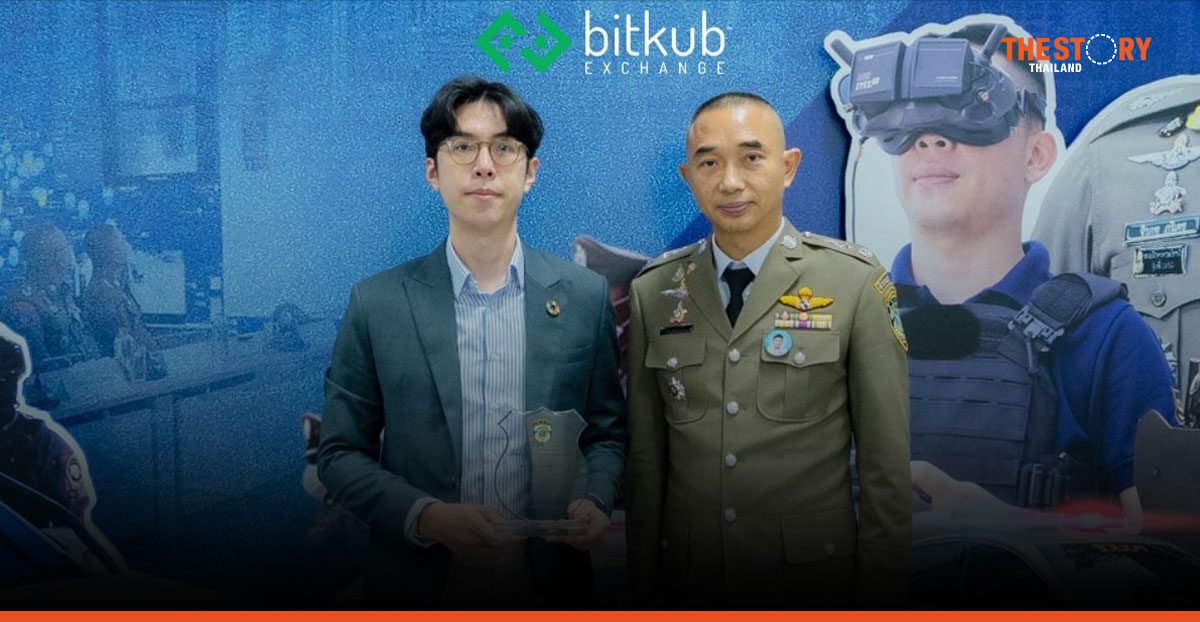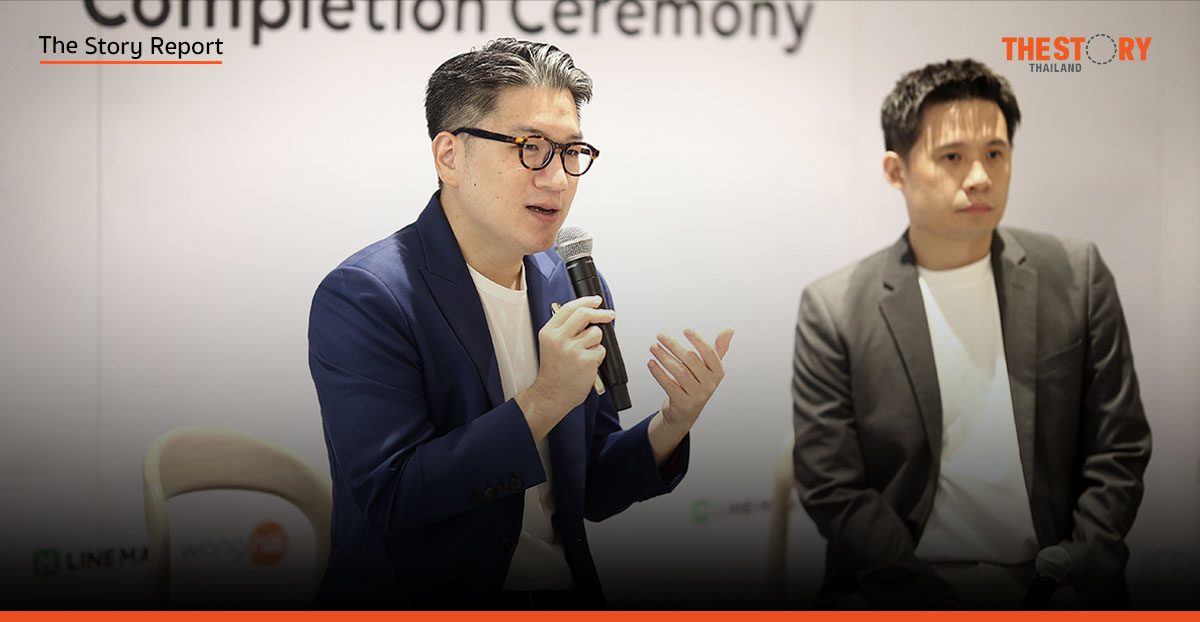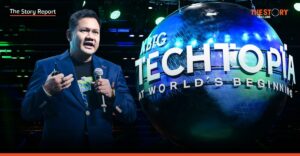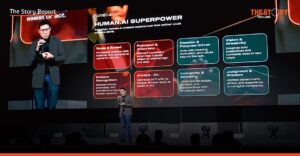The global economy is now a “global tech racetrack” where artificial intelligence is the critical equation that will determine the winners, declared Sigve Brekke, Chief Executive Officer of True Corporation Plc., at the Bangkok Post Forum 2025.
Speaking under the theme “Connecting Thailand’s Future: Digital Foundations for Growth,” Brekke painted a picture of an exponentially accelerating world and outlined the crucial steps Thailand must take to secure its position as a technological leader.
Brekke highlighted the dramatic compression of technology adoption cycles. While it took 30 years to move from the first mobile phone to the smartphone, and another 13 for smartphones to go mainstream, Generative AI reached that status in just five years. “ChatGPT reached 100 million users in only two months,” he noted, illustrating that change is no longer linear but exponential, faster, and more interconnected than ever before.
Three Forces Powering the AI Revolution
Brekke explained that the current AI explosion is fueled by the convergence of three powerful forces:
- High-Speed Connectivity : Robust telecommunications infrastructure, particularly 5G, provides the foundation for AI to operate at a macro level, enabling real-time data transmission and seamless device interoperability.
- Massive Data Generation : From smartphones and wearables to cars and home appliances, sensors are ubiquitous, leading to an explosion of data from the individual to the city level.
- AI Built on Top of Data : Advanced algorithms and models can now analyze and learn from this vast, real-time data. “When you layer AI on top of this data ecosystem, you unlock powerful automation and insights like never before,” Brekke said.
New Challenges for Business and Government
The arrival of AI brings not only equal access to information but also disruption that is faster and more severe than in the past. Brekke predicted that new business models will challenge incumbents, and leading companies today may not exist in 5-10 years if they fail to adapt.
Governments face similar challenges, with private companies encroaching on services once exclusive to the public sector. This necessitates urgent adaptation by public agencies to avoid being left behind.
Furthermore, the world faces new threats. “Cybersecurity risks have increased alarmingly, not just from criminals but from state-level actors,” Brekke warned. A single successful cyberattack could potentially cripple a nation’s power grid, banking system, or other critical infrastructure.
In geopolitics, the tech race is now central to international relations. Nations like China, the US, and Saudi Arabia are investing heavily in AI to build global power and influence. Data has also been weaponized to influence major political events, such as Brexit and the election of Donald Trump.
Four Pillars for Thailand’s Victory
To win this race, Brekke proposed four essential pillars that Thailand must strengthen:
- Infrastructure : Thailand holds a significant advantage with its strong telecommunications infrastructure, including fiber, 5G, and network coverage that surpasses many regional neighbors.
- High-Quality Data : Data is key to unlocking efficiency in sectors like healthcare and logistics. However, this data must be structured, unified, and usable.
- Talent : The “war for talent” is real, making the development of an AI-skilled workforce an urgent priority. Brekke noted that True Corporation has already provided foundational AI training to 55% of its employees, with a goal of 100%. He suggested AI education should begin as early as junior high school.
- AI Policy & Startup Ecosystem : Thailand needs a clear and decisive national AI policy, including the potential appointment of an AI Minister and robust policies on data sovereignty. This must be coupled with fostering a more vibrant startup ecosystem, which currently lags behind Vietnam, Malaysia, Indonesia, and Singapore, through tax incentives, supportive policies, and investment.
‘Trust’: The Indispensable Foundation in the AI Era
Brekke emphasized that the ultimate key to successfully leveraging AI is Trust. “While privacy laws are important, they are not enough,” he stated. Nations need clear national AI policies with strong governance frameworks to ensure development is ethical, transparent, and inclusive.
At True Corporation, all efforts are focused on building ‘Responsible AI’, with over 62 use cases governed by strict guidelines. The core principle is human oversight to ensure AI does not discriminate and respects universal values of fairness, diversity, and human dignity. True’s practices include:
Transparency : Clearly informing customers when they are interacting with AI, such as the ‘Mari-AI chatbot’.
Respect for Human Rights: Anonymizing all data and strictly adhering to PDPA law, with human agents reviewing sensitive processes like fraud detection.
Fairness and Inclusion : Testing AI tools on diverse customer groups to ensure non-discriminatory and accurate recommendations.
Human-Centered Design : Building AI to be polite, discerning, and ethical, and localized to understand Thai cultural contexts.
A Call for Transformational Leadership: Act, Adapt, Align
Brekke concluded with an urgent call for “Leadership Preparedness” capable of making faster, bolder decisions. He proposed a “3A” framework for transformational leadership:
- Act Bold : Lead with a clear vision and purpose, making critical decisions without waiting for perfect information, and embracing calculated risks.
- Be Adaptive : Cultivate curiosity, a passion for learning, and an openness to new changes daily.
- Align as One : Connect with people on an emotional level, build trust, and lead with heart. Great leadership, he argued, is about embracing diversity, listening deeply, and building resilient teams.
The message from the forum was clear: for Thailand to triumph on the global tech racetrack, it must build upon its four pillars, grounded in trust and driven by a new generation of prepared, transformational leaders.
Senior Com launches DV Platform to overhaul Thai auto dealerships amid EV boom
KBTG bets on ‘Agentic AI’ to remodel banking tech, reports 45% productivity jump





